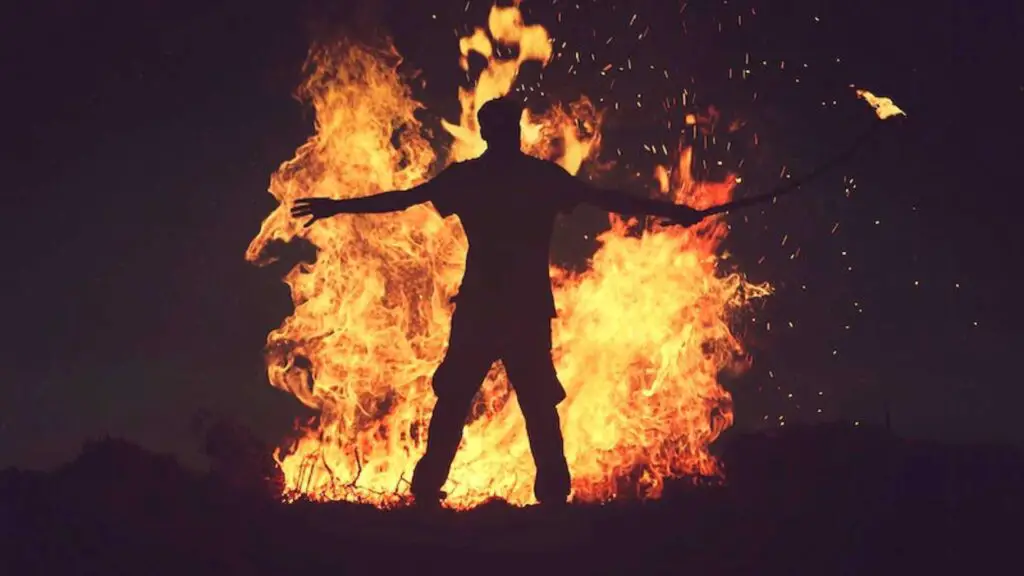Halloween is a well-known holiday that is observed on October 31st all across the world. Children frequently dress up as witches, goblins, heroes, and other characters. And while the adults take part in the Halloween party, the kids can go trick or treating throughout the neighbourhood. Halloween celebrations are so common that Muslims wonder if the holiday of Halloween is halal in Islam. But after knowing the dark history of Halloween, you will get your answer.
History of Halloween
History of Halloween goes back to the Celts of Ireland. When the ancient pagans of the British Isles celebrated Samhain, it was the first day of the New Year and the start of the winter season which later came to be known as Halloween. It was thought that supernatural powers gathered on this occasion and that the veil between the supernatural and human realms was thinnest. They thought that during this time, spirits from other realms, including the souls of the deceased, could come to earth and wander around. Samhain was a time when the Celts jointly honoured the sun deity and the lord of the dead. The crop was acknowledged to the sun, and encouragement was sought for the impending “war” with winter. Animals and crops were sacrificed in the ancient times by pagans to appease their gods.
Additionally, they held that on October 31st, the lord of the dead assembled all of the deceased individuals’ spirits. After passing away, the souls would reside in an animal’s body until this day, when the Lord would reveal what form they would assume for the upcoming year.

Christian Alteration of the Festival
By scheduling a Christian celebration on the same day as these ancient rites, the church attempted to divert attention when Christianity arrived in the British Isles. Much like Samhain honoured the pagan Gods, the Christian holiday of the Feast of All Saints honours the saints of the Christian faith.
Samhain traditions nevertheless persisted and eventually merged with the Christian festival. Irish and Scottish immigrants brought these customs to the United States and British colonies were settled.
Is Halloween allowed in Islam?
Almost all Halloween customs have their roots in either early Christian culture or old pagan culture. From the perspective of Islam, they are all forms of Shirk (idolatry). And thus Halloween is not allowed in Islam, it is forbidden. As Muslims, we should celebrate in a way that upholds and honours our religion. If we engage in practices that are based on paganism, divination, and the spirit realm, how can we worship Allah, the Creator, alone? Many people take part in these festivities without even being aware of their history or pagan roots, simply because their friends or parents did so or just to fit in the society.
What then can we do when our kids witness other people getting dressed up, enjoying candy, and attending parties? Even though it could be alluring to join in, we ought to be careful to protect our own traditions and prevent our kids from becoming tainted by this ostensibly “harmless” fun. When you are tempted, keep in mind the paganism behind these customs and supplicate to Allah for courage. Keep the festivities, the games, and the joy for our Eid celebrations. Children should learn that we only celebrate holidays that have religious importance to us as Muslims while still having fun. Holidays aren’t merely an excuse to overindulge and act irresponsibly. In Islam, holidays maintain their Islamic significance while providing adequate time for celebration. Create good memories on Eids so that your children and family can remember what a lovely day these are, far apart and better than dressing up ugly and begging for some offerings.
Is it haram to take or give candies on Halloween?
Indeed, Trick or treating is haram in Islam. Giving out candy alone is still regarded as haram.
The Halloween celebrations would not be complete without the Trick or Treat custom. Children will knock on neighbors’ doors and shout, “Trick or Treat,” while requesting candy or chocolate.
Children were costumed as evil spirits at ancient Celtic festivals to keep out demons that would harm them. On the other side, the custom of knocking on doors and requesting sweets originated with needy pagan people who wanted something to eat on holidays. or evil spirits creating mischief on this day.
Islam holds the belief that giving is preferable to receiving, hence trick-or-treating and begging are both forbidden. and certainly doing what the evil spirits used to do according to pagans is even more sick. That is why we consider Halloween a trick o treat haram.
Read more interesting articles or follow us on social media.






